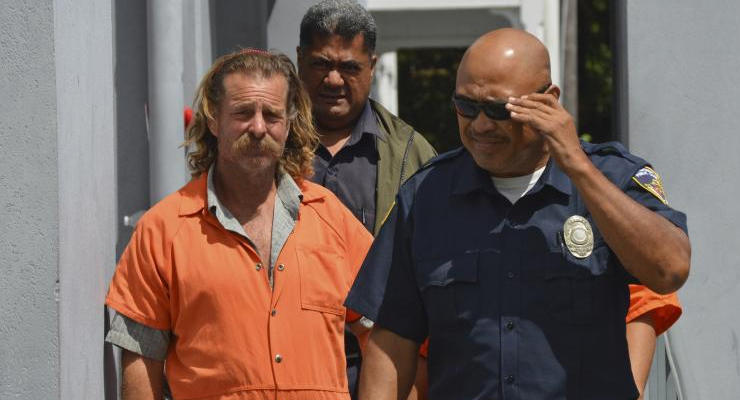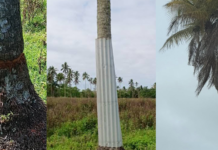COMMENTARY: The decision by Colombian president Gustavo Petro to return two military aircraft of deportees from the United States, citing tens of thousands of illegal US immigrants in his country, provides an important clue for Tonga.

The kingdom is expecting an influx of deportees from the States as part of the Trump administration’s crackdown on criminals and undocumented immigrant policies.
Petro, according to a Guardian report, blocked two US military aircraft last week carrying deported Colombians from landing in his country, prompting a feud with Donald Trump, who enacted emergency tariffs and other retaliatory measures.
Mexico reportedly refused to receive a similar flight on Saturday, according to US officials cited by Reuters and NBC News.
Petro condemned the practice on Sunday, suggesting it treated migrants like criminals. In a post on social media platform X, Petro said Colombia would welcome home deported migrants on civilian planes.
He also said that there were 15,660 Americans who were living without legal immigration status in Colombia.
He said, “he would never carry out a raid to return handcuffed Americans to the US”.
Petro’s reference to the number of Americans living without legal immigration status in his country could be seen as a strategic move in negotiations with the US, suggesting a form of reciprocity and returning favours that could be used by targeting countries to address Trump’s mass deportation policies.
While there may be no American citizens residing in Tonga unlawfully, there exist other circumstances that could assist the Eke government in engaging with U.S. authorities to address the potential arrival of deportees in Tonga.
2016 US Suspect
Over the past five decades, Tonga has unsuccessfully pursued requests to repatriate United States citizens suspected of committing murder in the kingdom so they could face justice.
In 2016, the Tongan government processed a formal extradition request to the American Samoa authority to have the US citizen suspected of murdering his wife in Tonga’s Vavaʻu islands be brought back.
Dean Jay Fletcher, 54, was facing charges in Tonga in connection with the death of his Canadian wife.
He fled a prison cell on Vava’u before he was arrested in American Samoa.
The US authorities took him to Hawai’i to face judicial proceedings.

The court finally released him, saying the US was worried that without a legal aid system in Tonga, Mr Fletcher would not have legal representation or a fair trial.
Despite the release, the Tongan government kept fighting to have him returned, but to no avail.
1976 killing of US volunteer
A female Peace Corps volunteer was killed in Tonga in 1976.
Debra Gardner, 23, was murdered in the village of Ngele’ia in Tongatapu by Dennis Priven, another US Peace Corps volunteer.
It has been alleged that the Peace Corps and US authorities duped the Tongan government into letting them move Priven to America, where he was eventually released.
During the legal proceedings, the US government sent a psychiatrist from Hawai’i to assist Priven in court, but the Tongan government could not afford to hire one.
Tongan lawyer Clive Edwards represented Tonga in court.
Edwards submitted to the court that Priven was not guilty by reason of insanity.
American promises
The US authorities assured the Tongan government that if they allowed Priven to be handed over, he would face confinement in the US.
The move was opposed by Tonga’s then Prime Minister, but Priven’s removal was later approved after a letter from US authorities promised that Priven would be admitted to Sibley Memorial Hospital in Washington for treatment.
The letter said Priven could be held involuntarily and “that his mental commitment would be terminated only upon findings that (the) patient is no longer a threat to society or himself.”
Priven was flown under escort to Washington, but instead of being committed to psychiatric care, he returned to his family home in Brooklyn and took a government job as a computer supervisor with the Social Security Administration.
Deborah Gardner’s father assumed her killer had spent decades in an institution. He later learned from Philip Weiss, who wrote a book about her daughter, not the Peace Corps or the government, that he had never been confined.
Eke government
It is estimated that approximately 30 individuals convicted of crimes in the United States are deported to Tonga each year. This figure complicates the already significant challenges associated with Tonga’s illicit drug crisis.
If the mass deportation policies implemented during the Trump administration were to double the current number of deportations, Tonga could potentially experience a significant escalation in drug-related illicit activities.
Tonga can use the Fletcher and Priven cases to negotiate with U.S. authorities and encourage them to rethink their current deportation policies and consider a more lenient approach for undocumented Tongans and criminals in the States.







